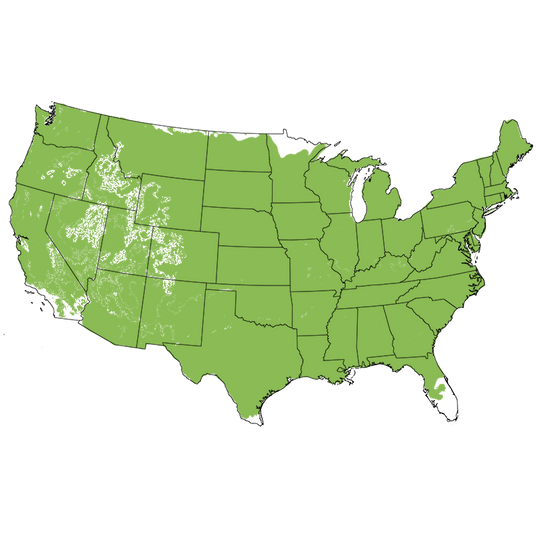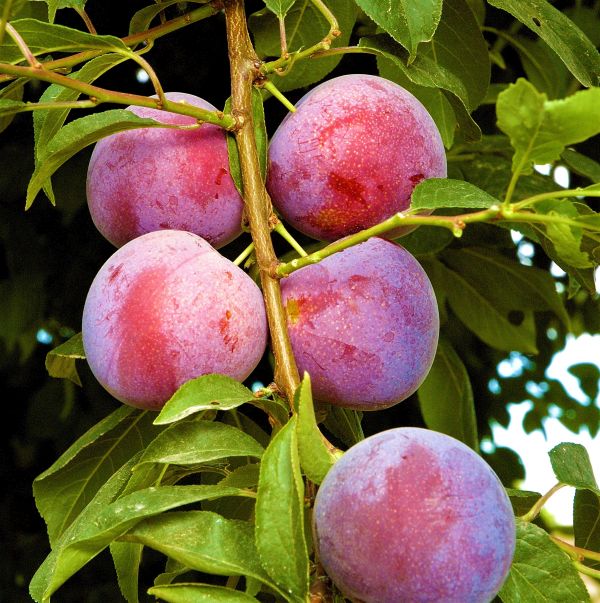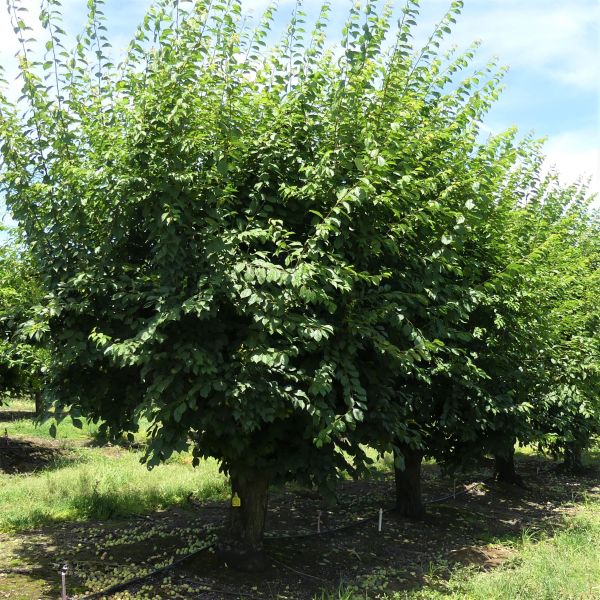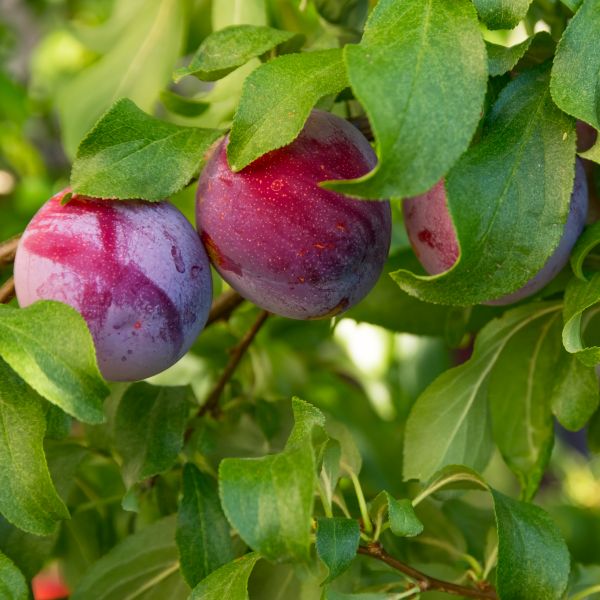Methley Plum Tree
Prunus salicina 'Methley'
Planting & Care
Planting & Care
Delivery and Shipping
Delivery and Shipping
Preorder Shipping Schedule
We ship your plants when it's safe to transport them to your zone. Dates are estimated and subject to weather delays.
| Zone 3-4 | Week of March 30th |
| Zone 5 | Week of March 16th |
| Zone 6-12 | Week of March 2nd |
Shipping Rates
Ships in 3-4 business days • Tracking provided • Weather protected
| Under $50 | $9.99 |
| $50 - $99.99 | $14.99 |
| $100 - $149.99 | $16.99 |
| $150 - $198.99 | $24.99 |
| $199+ | FREE |
✓ Zone-specific timing • ✓ Professional packaging • ✓ Health guarantee

Plant Sentry™ Protected
Your order is protected by our compliance system that:
- Prevents restricted plants from shipping to your state
- Ensures plants meet your state's agricultural requirements
- Protects gardens from invasive pests and diseases
Great for Fruit Beginners Methley Plum Tree!
- Gorgeous Reddish-Purple Fruit
- Soft, Sweet, Mild & Juicy Fruit
- Self-Pollinating
- Drifts of White Spring Blooms
- Fragrant & Call Pollinators
- Mid-Season Harvest
- Heavy Bearing & Strong Limbs
- Highly Adaptable
- Heat & Disease Resistant
- Bruce Plum Tree Pollination Partner
- Eating Fresh, Pies, & Preserves
- Low 150-250 Chill Hours
The Methley Plum (Prunus salicina 'Methley') is a fast-growing tree that produces an abundant harvest of sweet, juicy fruit each year! Plant one in full sun where its showy, spring display and abundant harvest won't be overlooked.
Methley Plum brightens up your spring with a flurry of stunning, snowy white blooms. Sweetly scented, and delicate as a feather, the fragrant blossoms will drift through your yard on the gentlest of spring breezes.
By mid-season, Methley will be weighed down with medium-large fruit. The beauty of the deep reddish-purple skin is only surpassed by the gorgeous deep crimson color of the flesh. Methley is soft, sweet, and very juicy. Excellent for fresh eating, or jelly, jam, and other preserves!
It is known as a heavy producer, its yearly crop is so abundant that you will need to harvest it multiple times! One of the best features of Methley is that, even though often laden down with fruit, it has very strong limbs. No worry about propping it up or thinning it out as you do with some other high-producing trees.
If you're looking for a Plum Tree that even a beginning gardener can be successful with, then Methley is for you!
How to Use Methley Plum Tree In The Landscape
An incredible ornamental tree, Methley takes the place of that boring flowering tree that is done for the year after its spring bloom. Great-shaped trees, plus delicious fruit, this tree outperforms most other trees in the landscape.
The mature size is fantastic for the average-sized to larger orchard or yard, providing great shade throughout the landscape! Or, you can easily maintain this tree as a much smaller, easy to harvest, size for adding to existing orchards or landscape designs.
A Japanese Plum tree, this is a lovely accent for front yard garden design, this dual-purpose ornamental tree makes it easy to make your landscape plants fill your pantry as well!
Set a chair beneath the early spring blooms to watch the bees go about their business, or under the mid-season harvest and watch as your fruit ripens! Be sure to situate this tree outside your favorite window so you’ll always have a chance to witness its beauty throughout the seasons.
What other tree produces heavy annual crops of juicy sweet red-purple fruit while looking good doing it?
#ProPlantTips For Care
Fruit trees require full sun for best results, so give your tree at least 6 hours of sunlight per day, favoring the drying power of the morning sun. Plant in USDA growing zones 4-9, Methley is very low chill, plus it blooms later to avoid spring frosts.
Plant in rich, organically enhanced, well-drained soil, adding compost and manure to further enrich the soil. Top with a hefty layer of mulch to insulate the soil and hold in more moisture! Water moderately, yet consistently to protect your investment.
It has a medium growth rate and can adapt to a variety of soils. A self-fertile tree, Methley does not require another plum tree to produce fruit. Because only one tree is needed for large fruit harvests, it is perfect even for a smaller yard.
Head over to read more on Plum Tree Care in our Garden Blog for more Fruit Tree Planting, Fruit Tree Pruning and Plum Tree Care tips and tricks can be found!
This Japanese variety features the simplicity of care and hardy nature that is often overlooked in light of its superior fruit qualities, but Methley is a Plum tree that truly has it all! Order one for your garden today at NatureHills.com!
Plum Tree Frequently Asked Questions
How long does it take for Methley Plum Trees to bear fruit?
Nature Hills Nursery sells fruit trees with mature root systems that are already three to four years old, so you’ll enjoy fruit sooner than you would with younger trees! Expect young Plum trees to begin fruiting usually by the 2nd to 4th year after they establish in your landscape.
How big do Methley Plum trees grow? How fast do Plum trees grow?
The Methley Plum tree can grow to a mature height of 15-25 feet and a mature width of 12-20 feet.
Once your Plum tree has been established (after the first year), it can typically add 13-24 inches of new growth per growing season. If your plants are growing less than that in a season, it may be worth your while to check the fertility level.
Where is the best place to plant a Methley Plum Trees?
Plum trees grow best in well-drained, fertile soil in at least 6 hours of full sun per day or more. Provide good air circulation and moderate, yet consistent water in well-drained, fertile soil.
Do You Need 2 Plum Trees to Produce Fruit?
The Methley Plum trees are self-fertile, so planting more than one Plum tree that blooms at about the same time, boosts yields on both trees and extends your harvest time!
No room? Look into High-Density Planting techniques, or choose a semi-dwarf or dwarf fruit tree.
When Should Methley Plum Tree be Planted?
Bareroot Plum trees can be planted in spring when they are available in your area. Container-grown Plum trees can be very successfully transplanted all throughout the growing season. Check for first and last frost dates for your area with your local County Extension Office.
- Plant bareroot Plum trees in the early spring.
- Plant container-grown trees anytime the ground is not frozen by digging a hole as deep as the soil line and twice as wide.
How Do I Find Methley Plum Trees for Sale Near Me?
Make your life easier and your landscape tastier by shopping for Plum trees at NatureHills.com online fruit tree nursery. You’ll find a massive selection of fruit trees for sale, including many lovely Plum tree varieties!
Choose the right tree for your area by first finding your USDA growing zone by entering your zip code in the field above the Plant Highlights section on our product pages. Narrow down your options by plant hardiness zone, sun availability, and size requirements.
Place your order, knowing it’s backed by the Nature Hills Nursery product guarantee and protected by Plant Sentry™, which helps ensure regulated plant materials aren’t sent to prohibited areas.
Expect to receive your plants at the appropriate planting time for your growing zone when temperatures are safest for those plants that ship in fall, winter, or early spring.
Shop the selection of mature Plum trees for sale at Nature Hills Nursery and place your order for Methley Plum Tree today.
What shipping options do you offer?
NatureHills.com works closely with our growers and nursery professionals to ensure we ship when it is most appropriate for your area. Our goal is to deliver the hardiest plants by avoiding extreme high and low temperatures. Check out our shipping schedule for more information and to learn our wills and won’ts when it comes to shipping plants. Find your Methley Plum Tree for sale here at NatureHills.com!
-
Botanical Name
-
Growing Zones
-
Height
-
Width
-
Sunlight
-
Growth RateModerate
-
Flower Color
-
Leaf Color
-
Bloom PeriodLate Spring
-
Does Not Ship ToAK, HI, ID, MT







